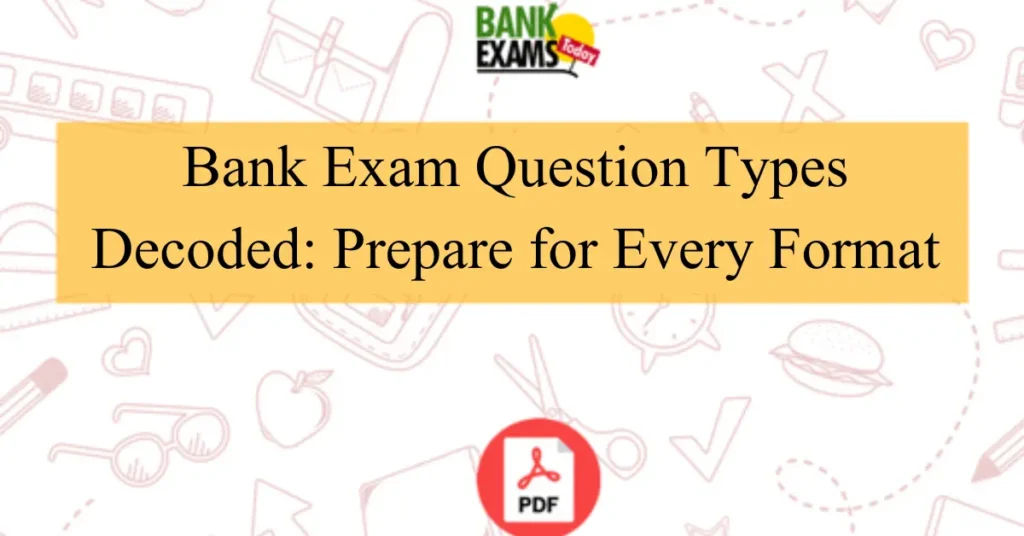For many aspiring to enter the banking sector, understanding the question types in bank exams is crucial. So, this article aims to demystify the various question formats encountered in these examinations, providing insights and strategies for adequate preparation. These exams test multiple skills, from quantitative aptitude to language proficiency. Preparing for each question type can be daunting, but with the right approach, it’s certainly achievable.
Deciphering Multiple Choice Questions (MCQs)
The Backbone of Bank Exams
MCQs form the core of bank exams. They typically cover topics like reasoning, general awareness, and specific banking knowledge. The key here is not just knowing the answer but understanding why it’s the right choice. Practice is vital. Regular engagement with questions similar to what you’d find in an actual exam. As such, you can opt for online options like the Guidely PDF Course, which can greatly enhance your precision and speed.
Strategies for Tackling MCQs
- Read questions carefully, understanding each word.
- Eliminate obviously wrong answers.
- Look for keywords in both the question and the options.
- Practice time management to avoid spending too long on one question.
Navigating Data Interpretation (DI)
The Test of Analytical Skills
DI questions require analyzing data presented in various formats, such as graphs, charts, and tables. These questions test your ability to interpret and process information quickly and accurately.
Tips for Excelling in DI
- Practice different types of graphs and charts.
- Work on quick mental calculations.
- Focus on improving your analytical skills through regular practice with resources like Guidely PDF Course.
English Language Section
More Than Just Vocabulary
This section assesses language proficiency, including grammar, comprehension, and vocabulary. It’s not just about having a rich vocabulary; it’s about understanding context and nuances in language.
Improving Language Skills
- Read widely, from newspapers to novels.
- Practice comprehension exercises.
- Learn new words daily, but also focus on their usage.
Preparing for Descriptive Questions
The Art of Expressive Writing
In descriptive sections, candidates are usually asked to write essays or letters. This tests not only knowledge but also the ability to express thoughts coherently and persuasively. It’s about articulating ideas effectively, ensuring that each word adds value to your argument or narrative.
Key Strategies
- Practice writing on a variety of topics.
- Focus on structure, clarity, and grammar.
- Time yourself to get used to the time constraints of the exam.
Logical and Analytical Reasoning
The Puzzle Solving
These questions test your problem-solving and logical thinking abilities. They can be quite challenging but are extremely rewarding once you get the hang of them.
Tips for Logical Reasoning
- Practice different types of puzzles and logical problems.
- Develop a systematic approach to solving questions.
- Enhance your skills with resources that offer a variety of problems, like Guidely PDF Course.
Computer Knowledge
Keeping Up with Digital Trends
This section tests basic computer knowledge and understanding of digital platforms, an essential skill in today’s banking sector.
How to Prepare
- Stay updated with basic computer terminologies and functions.
- Understand the basics of operating systems, internet applications, and office tools.
- Utilize online resources for practice and learning.
Conclusion
Preparing for bank exams can seem like a herculean task. However, breaking down the question types and tackling each with a focused approach makes the journey less intimidating. Resources like Guidely PDF Course can be instrumental in your preparation.
Remember, a combination of smart work, regular practice, and a calm, confident mindset will lead you to success. So, as you gear up for this challenge, enjoy the learning process and let your hard work pave the way to achieving your banking career aspirations.
